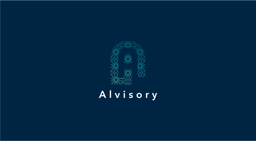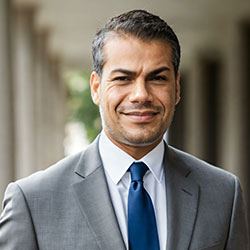Mahieddine Raoui and Steven Aldrich, Partners
“Algeria’s Mining Reform: Regulatory Shifts Tailored to Economics Specifics"
Algeria possesses substantial mineral wealth which, despite its magnitude, has long remained underexplored and underexploited. For decades, the country’s economic model has been predominantly hydrocarbons‑oriented, leaving its significant geological potential largely unexplored.
From a regulatory perspective, the development of the mining sector has been constrained by an inadequate framework, historically designed with a primary focus on securing State control over resources exploitation. This framework failed to incentivize exploration activities, notwithstanding their critical role as a prerequisite to any viable exploitation strategy.
The enactment of the Law no. 25-12 of 3 August 2025 governing mining activities (the “New Mining Law”) marks a profound reform of the legal regime applicable to all stages of the mining value chain. It aligns ambitious development objectives with the imperatives of attracting investment and securing technical expertise.
A Sector Ready for Transformation
The nature of Algeria’s mining sector presents a greenfield opportunity that requires technical expertise, financial capacity but also the ability to navigate geological uncertainty, environmental sustainability and regulatory intricacy. Those prerequisites concern all actors capable of contributing to the development of a modern, competitive mining industry—whether they are exploration-focused juniors, production-oriented majors, or State-owned companies.
However, junior companies are particularly well-positioned to engage in early-stage exploration, as their business models are inherently structured to embrace uncertainty and invest in unproven territories with the expectation of future monetization or strategic partnerships.
Yet, under the Law No. 14-05 of 24 February 2014 (the “Former Mining Law”), the legal framework was ill-suited to the full development of Algeria’s mining potential and more particularly to the specifics of junior models.
The Former Mining Law: An Incomplete Framework Ignoring Exploration Challenges
The Former Mining Law has allowed the implementation of risk-free exploitation projects, that is to say in which the deposits uncertainty level was controlled.
Indeed, some landmark mega projects were developed, typically led by State-owned companies in collaboration with international large-scale international companies. Notable examples include the Gara Djebilet (iron), Djebel Onk (phosphate), Tala Hamza-Oued Amizour (zinc) and Amesmessa (gold) mines.
Moreover, previous regimes have allowed the quarrying sector to flourish. A significant number of permits were granted to Algerian law companies, including some with full foreign ownership—highlighting the country’s geological appeal. Within a decade, the country has remarkably transitioned from importer to net exporter of cement.
However, the Former Mining Law triggered many uncertainties and failed to address exploration investments challenges. In some key respects, it proved to be restrictive and unsuitable:
Strategic minerals could only be explored and exploited by public entities.
Non-strategic minerals could only be explored by Algerian law companies subject to the 49/51 rule, limiting foreign ownership.
Uncertainty around “strategic minerals”, due to the absence of implementing measures providing a clear legal definition.
Lack of ownership rights in exploration/exploitation agreements with public entities, a critical flaw for investors unable to secure the economic valuation of their discoveries.
The New Mining Law: A Comprehensive Answer to Mining Specifics
The New Mining Law introduces a modern, inclusive and agile framework crafted to unlock Algeria’s mining potential.
One of the main challenges was to establish a framework addressing the structural exploration underinvestment. Indeed, the mining industry is hyper-specialized and players involved are not the same through the exploration/exploitation phases:
Exploration is generally operated by mid-sized, risk-seeking juniors specializing in early-stage research. Their business model is based on valuation rather than on revenues.
Exploitation is the realm of majors which are risk-averse due to the high capital intensity of their operations. Their business model is structured around project finance requiring regular revenues, certainty and stability.
From this perspective, the mining sector is quite similar to the pharmaceutical industry, where R&D risks are massively externalized. Likewise the “Biotech-Big pharma” relationship, in the mining sector, juniors absorb exploration hazards while majors incur operational and market-access risks.
The New Mining Law captures this risks allocation between juniors and majors and set mechanisms allowing them to coexist optimally, notably by strengthening inventors' rights, clarifying the mining title’s regime and relaxing equity constraints at exploration level.
Key Changes Supporting Sector Upscale
Direct Access to Exploration Permits
Foreign entities can now directly obtain prospection and exploration permits, facilitating early-stage investment and technical input. They are not required to set up a company incorporated in Algeria to perform research activities.
Inventor’s Right
The New Mining Law strengthens the “inventor’s right,” which is instrumental to streamline value-creation process. It ensures that exploration title holders discovering deposits are prioritized to exploit them either directly or by assigning their rights to specialized players. The inventor's right is therefore pivotal to allow juniors-majors synergies to thrive.
Flexible Ownership Structure
Exploitation permits can be granted only to companies incorporated in Algeria. Foreign investors are entitled to hold up to 80% of the share capital while the national mining company shall own a non-dilutable 20% stake. However, this 20% threshold can be increased (i) upon agreement between the national mining company and foreign investors based on economic grounds and (ii) within bid rounds initiated by ANAM to grant exploration titles. The rationale behind this ownership flexibility relates to the necessity to reflect in an appropriate way the risk matrix governing the relationship between the different stakeholders. Indeed, as a policy matter, it appeared critical to provide some leeway required to compensate fairly the risks incurred during the exploration phase which was not possible under the “49/51” scheme.
Transferability of Mining Titles
Both exploration and exploitation titles can be transferred while only exploitation titles can be mortgaged or leased (amodiés). Those rights are key drivers of financial modelling of activities highly capital-intense. Indeed, they offer title holders different monetization options and dramatically ease financing, partnerships or exits strategy.
However, government’s oversight ability is sustained since the exercise of those rights requires the approval of ANAM. Moreover, the national company benefits from a pre-emption right over transfers carried out by companies composed of foreign shareholders, except for intra-group transactions.
Streamlined Procedures and Transparency
The New Mining Law embodies a deep change of the sectorial governance commanded by the anticipated growth of players at prospection, exploration and exploitation levels. It introduces simplified administrative processes, shorter approval timelines, and open access to geological data—critical to promote investors’ interest and allow them to optimize budgets and timelines.
Strategic Prioritization and Regional Positioning
Whereas quarries are now subject to more stringent ownership requirements—mandating a minimum of fifty‑one percent (51%) Algerian ownership—the mining sector offers greater openness to foreign participation, permitting foreign investors to own up to eighty percent (80%) of the share capital in exploitation companies as an investment incentive. As pointed out, such foreign ownership may be adjusted to reflect the level of risks incurred by each stakeholder. This modulation of equity thresholds illustrates how public-policy makers can leverage FDI screening mechanisms to channel capital flows towards strategic priorities. (See our contribution: “FDI screening in Algeria : sectorial approach does not preclude activity scrutiny”).
This also reflects Algeria’s ambition to develop its unexplored mineral and fossil wealth and foster a competitive mining industry. In this respect, Algeria’s progressive strategy embedded in the New Mining Law stands in contrast to a global trend towards tightened foreign access to mining resources. This positions Algeria as a regional leader in mining reform, offering a compelling alternative for investors seeking stable and scalable opportunities.
Conclusion
The enactment of the New Mining Law marks a decisive shift in Algeria’s approach to mining. By relaxing regulatory restrictions and introducing a framework that integrates the technical, financial, and legal prerequisites for sector-wide development, Algeria is positioning itself as a competitive and attractive hub for mineral exploration, exploitation and ultimately industrial processing.
The economics of the Mining Law is designed not merely to attract investors, but to facilitate Algeria’s integration into highly specialized global value chains, while fostering the emergence of a diversified and complementary ecosystem of sectoral players.
To explore opportunities under the New Mining Law or assess the viability of your mining project in Algeria, we invite you to contact Alvisory’s experienced team and sector experts. Our legal and strategic advisors are available to assist with regulatory analysis, structuring, and implementation of mining ventures tailored to your investment profile.

